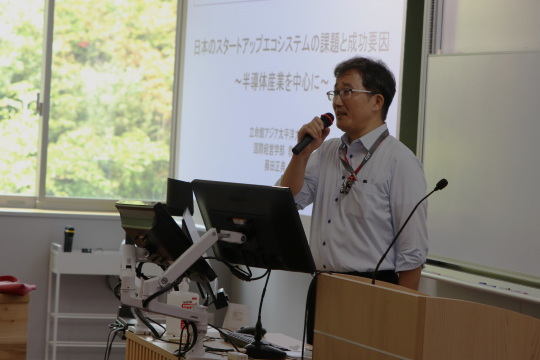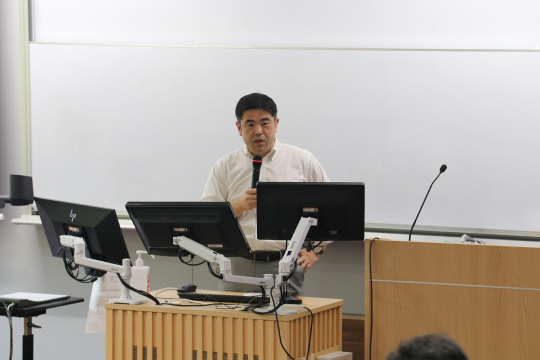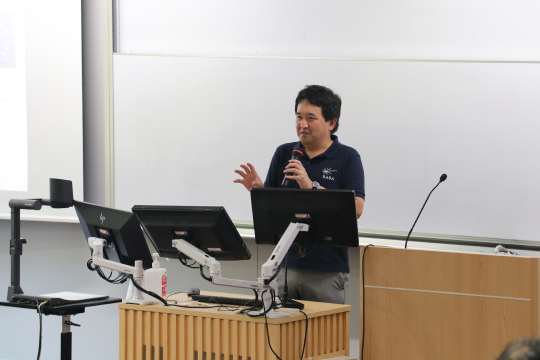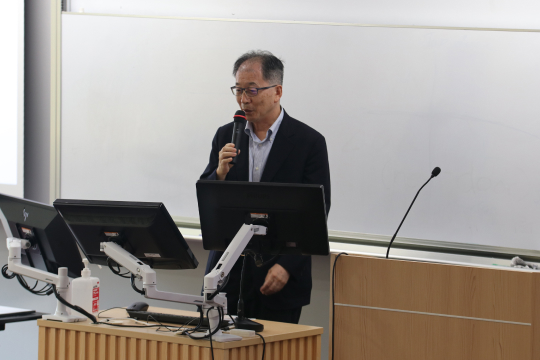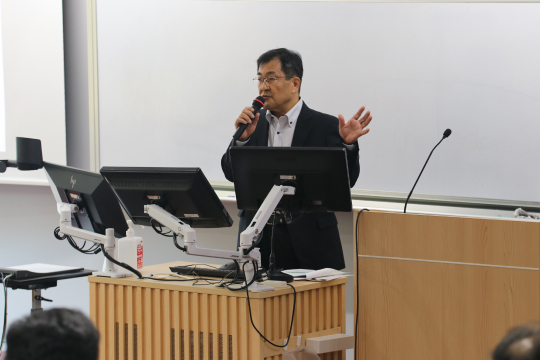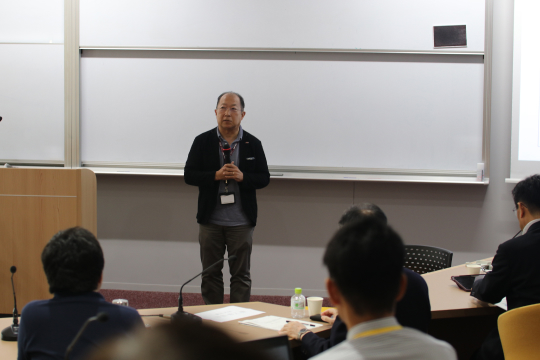On Friday, August 2, 2024, Professor Masanori Fujita of the College of International Management held a workshop entitled "Challenges and Success Factors of Japan's Startup Ecosystem: Close-up on the Semiconductor Industry."
To create an ecosystem that produces and cultivates startups in Japan, the Japanese government has been implementing its “Startup Development Five-Year Plan" since 2022, with the goals of increasing investment in startups to 10 trillion yen and creating 100,000 startups, including 100 unicorns, by 2027. In Kyushu, there has been an increase in the number of semiconductor-related businesses following the entry of Taiwan's TSMC into Kumamoto, and many startups are attempting to get off the ground.
Against this backdrop, Professor Fujita began by explaining the purpose of the workshop as follows: "In this workshop, we would like to discuss whether the existing semiconductor ecosystem and new startup ventures can be combined and how companies and academia (universities and other research institutions) can collaborate.”
The workshop featured guest lectures and a panel discussion by four semiconductor experts from universities and industry. There were around 40 participants from LSI companies primarily in Oita, local governments, and the financial sector as well as attendees from APU.
First, in a case study from Kyushu, Professor Shinji Ohnishi from Kyushu University introduced the process that led to the establishment of Kyushu University Open Innovation Platform (OIP) Co., Ltd. in April 2024 as a means to accelerate the feedback of achievements accumulated by existing industry-academia collaboration organizations into society. He explained that he wants to build bridges between the research outcomes of Kyushu University OIP and industry and to support intellectual property management, funding assistance, and the retention of managerial talent, which will lead to the monetization of research capabilities and drive social transformation.
The next speaker was Professor Kentaro Kaneko from Ritsumeikan University. He has been conducting research on new power semiconductor materials ever since he launched his own startup when he was still a student. He talked about how since joining Ritsumeikan University in July 2022, he succeeded in creating a new power semiconductor material called GeO2, and in addition to explaining this achievement, he discussed the need to develop human resources to help revitalize Japan’s semiconductor industry.
Next, in a case study of startups in the Tokyo metropolitan area, Mr. Hirata from the University of Tokyo described the efforts being made to create a startup ecosystem in the greater Tokyo area by way of collaboration among universities, local governments, VCs, CVCs, accelerators, and private companies.
Then, to provide the industry standpoint, Mr. Akira Marui spoke about the history of the semiconductor cluster in Oita Prefecture and current initiatives. First, he explained that Oita Prefecture has had a cluster of semiconductor-related companies since the 1980s and that the Prefectural Government, before any other prefectures in Japan, conceived of the Oita LSI Cluster Concept to serve as a support system for local companies. Next, he talked about how the Oita LSI Cluster Promotion Council is promoting activities centered on four pillars—research and development, human resources development, sales channel development, and member exchange—under the new slogan it adopted in 2022: "Creating an Industrial Model for the Future: Transforming Vision into Reality through Shared Empathy.”
Finally, in the panel discussion facilitated by Professor Fujita, the four guests exchanged opinions while taking questions from the participants, making for a lively discussion.
At the end of the workshop, Hiroshi Yoneyama the President of APU, delivered his closing remarks in which he said, "I was very inspired by this discussion on a field that is experiencing rapid progress. I would like to think about how APU, which does not have a science program, can get involved from Oita, and what APU can do to create social impact by providing its expertise in multicultural collaboration or through other means."


